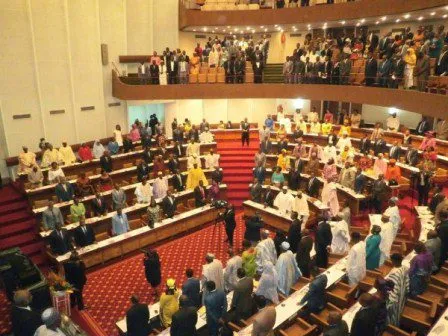By Tata Mbunwe
Lawmakers from four Cameroonian opposition political parties represented in the country’s National Assembly have formed a group which they say has as goal to defend public interest.
The decision is the content of a recent release. Signatories to the release include members of parliament, MPs of; the Social Democratic Front (SDF); Cameroon Party for National Reconciliation (PCRN); Cameroon Democratic Union (UDC); and Unions of Socialist Movements (UMS).
In their release, signatories wrote that: “We commit in our political action program to: Be the defenders of the interests of the Cameroonian people in the National Assembly Work for social justice and equal opportunities; Defend and promote economic patriotism; Fight injustice and stand with vulnerable and disadvantaged groups”.
They also said they will henceforth “ensure the influence of Cameroon in the world; legislate and control the action of the government in the supreme interest of the people Cameroonian,” and place the well-being of population “at the center of our concerns”.
The release was signed by Hon Joshua Osih (SDF); Hon Cabral Libii (PCRN); Hon Kupit Adamou (UDC) and Hon Pierre Kwemo (UMS) and a host of their peers from the parties who endorsed the group.
The commitment by these parties comes amid criticisms about Cameroonian opposition parties being too silent on several ills plaguing the country.
Parliament’s unwillingness to discuss the crisis in the English-speaking regions has also been widely criticized.
The four political parties above have just 16 seats in the 180 seats National Assembly. The SDF and the PCRN parties have five seats each while UDC and UMS have four and two seats, respectively.
Cameroon’s Parliament is overwhelmingly controlled by President Biya’s Cameroon People’s Democratic Movement party, CPDM, which has been in power for 40 years now.
The CPDM grabbed 139 parliamentary seats after the 2020 legislative elections. It was only followed by the National Union for Democracy and Progress, UNDP, which has seven seats.
Having just 16.8 percent of parliamentary votes, it is yet uncertain how the SDF and its three allied political parties intend to influence policy at the Cameroon National Assembly.



